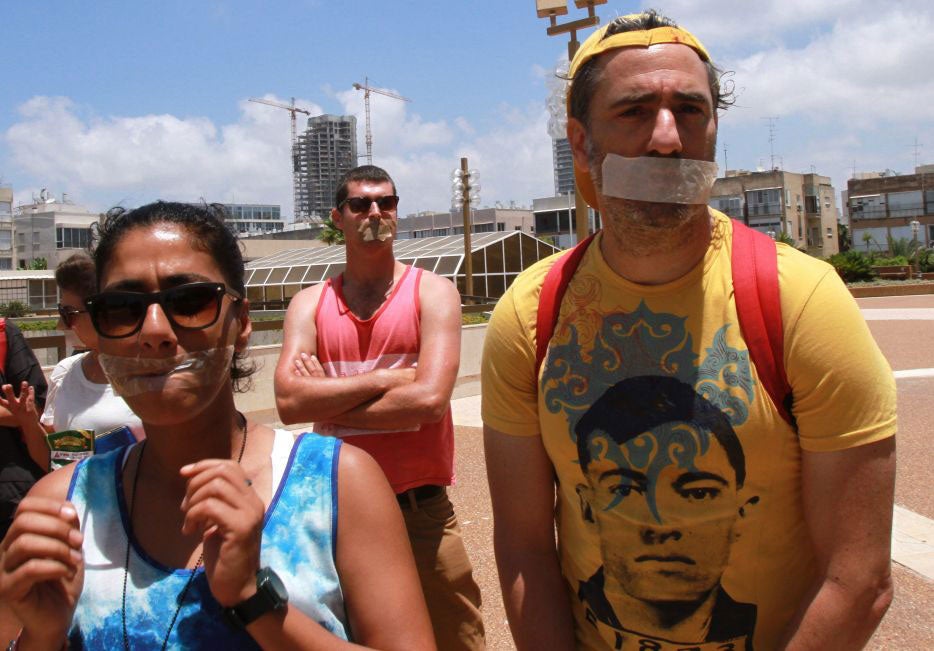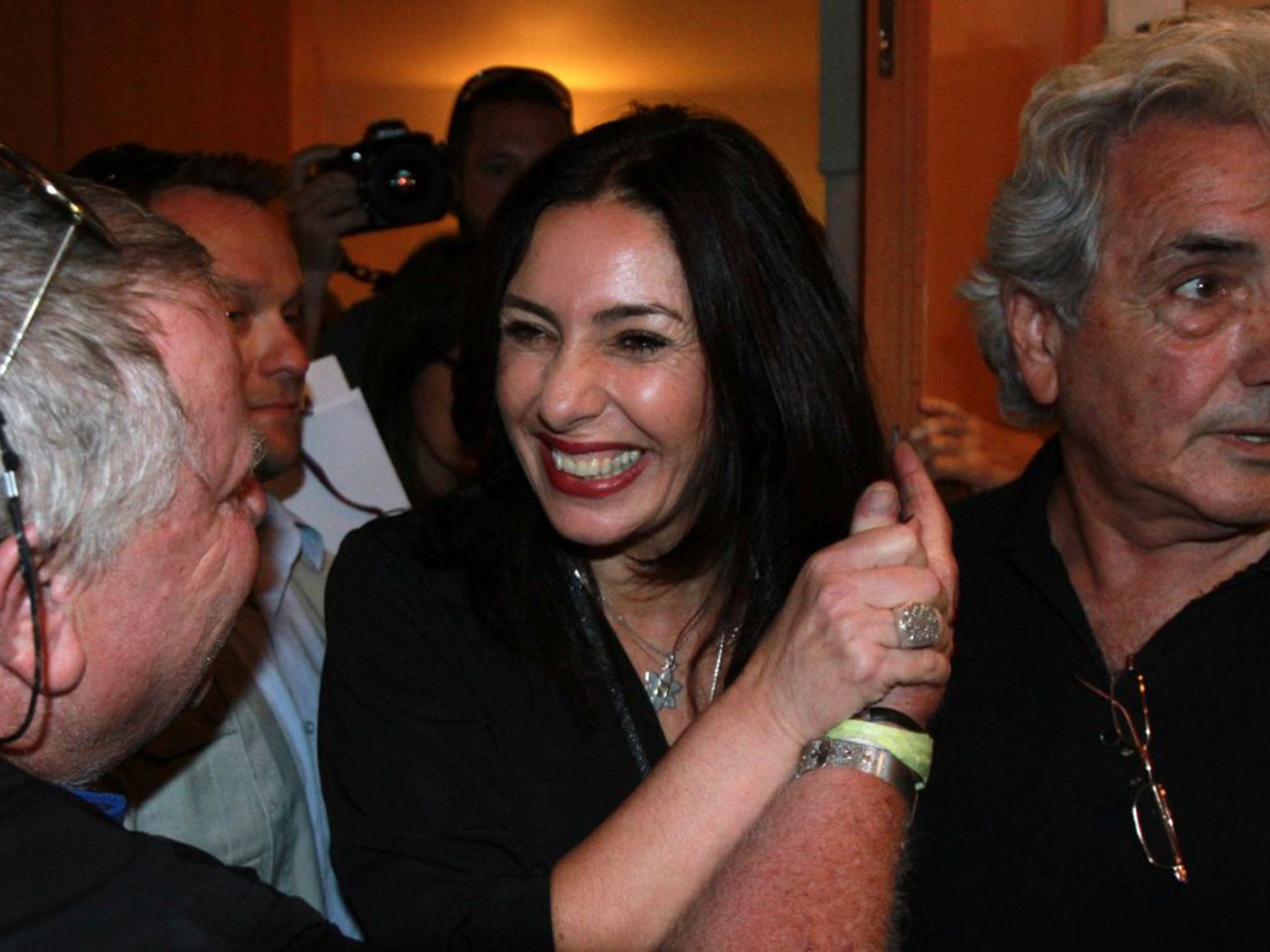Israel's Minister of Culture Miri Regev vows to withhold funds from artists who 'defame' the state
Some artists see the threat as a form of political censorship

Your support helps us to tell the story
From reproductive rights to climate change to Big Tech, The Independent is on the ground when the story is developing. Whether it's investigating the financials of Elon Musk's pro-Trump PAC or producing our latest documentary, 'The A Word', which shines a light on the American women fighting for reproductive rights, we know how important it is to parse out the facts from the messaging.
At such a critical moment in US history, we need reporters on the ground. Your donation allows us to keep sending journalists to speak to both sides of the story.
The Independent is trusted by Americans across the entire political spectrum. And unlike many other quality news outlets, we choose not to lock Americans out of our reporting and analysis with paywalls. We believe quality journalism should be available to everyone, paid for by those who can afford it.
Your support makes all the difference.Miri Regev, the hard-right Israeli Minister of Culture, has accused the country’s artists and performers of being “tight-assed” hypocrites after they raised vocal objections to her policies, which many consider a threat to freedom of expression.
Ms Regev’s remarks, aired in a television interview, were the latest escalation in what Israeli newspapers are calling a “culture war” between the government and much of the country’s predominantly left-wing artistic community.
Ms Regev, a reserve brigadier-general who formerly served as the chief military censor, alarmed many artists after she took office in May by saying she would cut government funding to those who harmed the army or contributed to “defamation” of Israel.
She followed this with threats to cut funds for an Arab-Jewish children’s theatre after its founder, the Arab Israeli actor Norman Issa, refused to perform with the Haifa Theatre at a settlement in the occupied West Bank on grounds of conscience. The settlements are considered by the international community to be illegal.

Ms Regev cut funding this week to the Arabic-language al-Midan theatre, which has been staging Parallel Time, a controversial play about the prison life of a Palestinian who killed an Israeli soldier. Her office said the decision was made after the director of the play, Bashar Morcos, told a culture ministry official that he identified with the killer. However, Mr Morcos denies this and is threatening to sue Ms Regev over the claim.
Also this week, the Jerusalem International Film Festival dropped a film about Yigal Amir, who assassinated Prime Minister Yitzhak Rabin in 1995 and is serving a life sentence, after Ms Regev threatened to withdraw funding. According to a deal struck with the culture ministry, the film is to be screened out of the festival schedule at a private theatre.
More than 3,000 artists, including some of the country’s most prominent actors and directors, have signed a petition against Ms Regev’s policies and a recent decision by the education minister, Naftali Bennett, to put an end to attendance of Parallel Time by groups of high-school students. “We protest [against] the anti-democratic steps that government ministries are taking against artists and cultural persons whose productions or views don’t accord with the winds blowing from these ministries,” the petition says. “We declare that we will continue to look reality in the eye, express our views and obey our conscience even if we have to pay a price.”
Ms Regev and her supporters say it is the protesting artists who are undemocratic, because they are unwilling to accept election results that gave the minister a mandate for her policies.
Ms Regev also shot back in a television interview on Thursday, saying Israeli artists were “tight assed, hypocritical and ungrateful” and did not appreciate her efforts to secure government budgets for culture. She later wrote on her Facebook page that she was referring to only some artists, including one, the actor Oded Kotler, who caused a storm on Sunday by appearing to refer to supporters of Ms Regev’s Likud party as “beasts”.
Ms Regev seems to relish the power she has over artists, telling her interviewer how a leading actor had asked her after she took office to explain what was permissible and what was not in order that he could complete a screenplay. Ms Regev said she replied: “Within a month you will know exactly what is permitted and what is prohibited.”
Orian Morris, a critic and writer, believes this week’s events are only the beginning. “It is easiest for the government to start with the extreme margins like Yigal Amir on the right and al-Midan on the left. There will be more strikes against the periphery and then it will start hitting closer and closer to home,” he said.
He believes the policies will “definitely” cause artists to engage in self-censorship.
Ms Regev’s actions, especially against Arab institutions, score her political points within her right-wing constituency and accord with the prevalent mood in Israel, according to the novelist Nir Baram. “She will speak against everyone and threaten everyone but the people she will really harm are the Arabs and the weak,” he said.
Nava Boker, a Likud member of the Knesset, denied that Ms Regev’s actions amounted to censorship. “Freedom of expression in a democratic country is sacred,” she told The Independent. “But to pay for this from public funds is not theatre but rather a theatre of the absurd. This should have been stopped a long time ago. We must be severe with all those who harm Israel.”
Join our commenting forum
Join thought-provoking conversations, follow other Independent readers and see their replies
Comments